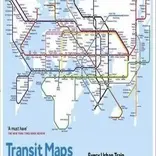Standard Club advises on cargo handling amid Irma

The disruption to cargo vessels recently caused by Hurricane Irma has raised a number of legal issues. In response, the Standard P&I Club published an alert, providing guidance on some of the issues commonly encountered.
- Deviations from route
Where cargo-carrying vessels have deviated from their planned route to avoid hurricane conditions, this will give rise to the late delivery of cargo and to potential losses to cargo receivers. Cargo receivers who have incurred such losses, however, will not be entitled to recover where their cargo has been carried under bills of lading that incorporate the Hague or Hague Visby Rules.
- Bills of lading
Further, if it is not possible for cargo to be discharged at the place of discharge named in a bill of lading, the terms of the bill of lading may entitle the carrier to discharge the cargo elsewhere. If the terms of the bill of lading do not entitle such solution, it may nonetheless be possible for the carrier to agree with the holder of the bill of lading that the cargo is to be discharged at a substitute place.
If such an agreement is entered into, the carrier will need to engage with its P&I club to ensure that the carrier has P&I cover for carriage to the substitute place of discharge.
- Voyage charters
In addition, where the terms of a voyage charter name a port and/or berth at which cargo is to be loaded, or at which cargo is to be discharged, and it is not possible for cargo to be loaded at that place, further terms in the charter may give a right to the owners of the vessel to load or discharge cargo at a substitute place.
- Frustration of contracts
If it is not possible to discharge cargo at an agreed place specified in a contract of carriage (eg a bill of lading or a charterparty) and there is no term in the contract permitting a substitute place to be used, the contract may be viewed as frustrated. However, identifying whether or not a contract of carriage is frustrated as a result of prevailing circumstances, can be a very difficult exercise.
- Time charters – unsafe ports and berths
Time charterers of vessels are under an implied obligation to order the vessel only to ports and berths that are safe. However, what dangers can be avoided by good seamanship, and what will constitute an abnormal occurrence in any given circumstances, may be open to debate.Where the time charterer of a vessel has ordered the vessel to a port or berth that is unsafe, there is an obligation upon the time charterer to name a substitute port that is safe.
- Time charters – payment of hire
Under time charters, hire continues to be payable for a vessel unless circumstances have arisen which bring the vessel ‘off hire’ as defined in the charterparty terms. Whether or not delays caused to vessels by Hurricane Irma will have brought time chartered vessels off hire will therefore depend upon the charter terms agreed for each vessel, which may need to be scrutinised closely by the owners and charterers concerned.
- Cargo damage
If cargo-carrying vessels have been unable to avoid the effects of Hurricane Irma, with the result that cargo on board has become damaged, the carriers of the cargo may have a defence to claims for that cargo damage.















![AIRBUS A380 [MORE THAN 600 PASSENGER’S CAPACITY PLANE]](https://cdn.tinn.ir/thumbnail/4jCp4EQvCU0b/IjHVrSYQrIAqIzXuTzADR7qLYX4idQT4nfq__26E5SCUPLMqfhWkWajvuO9Wfq1ql1TjV4dhkrHliNQU82kMpo2NNftT_NGEwHc9KXtN_rk731bmifa2IQ,,/airbus-a380-structure1.jpg)

Send Comment